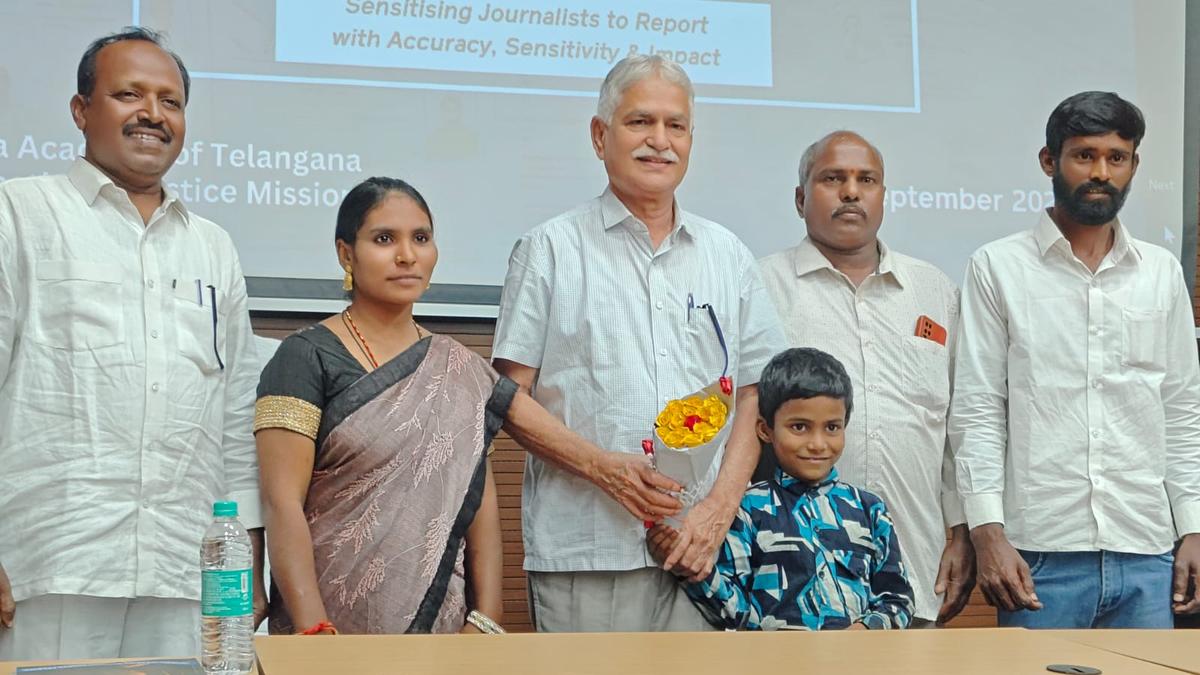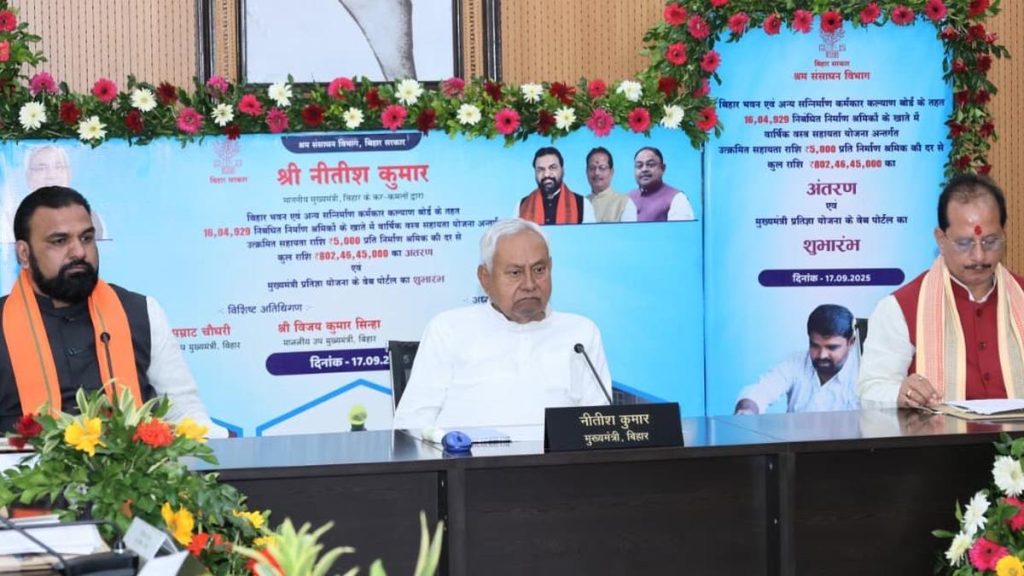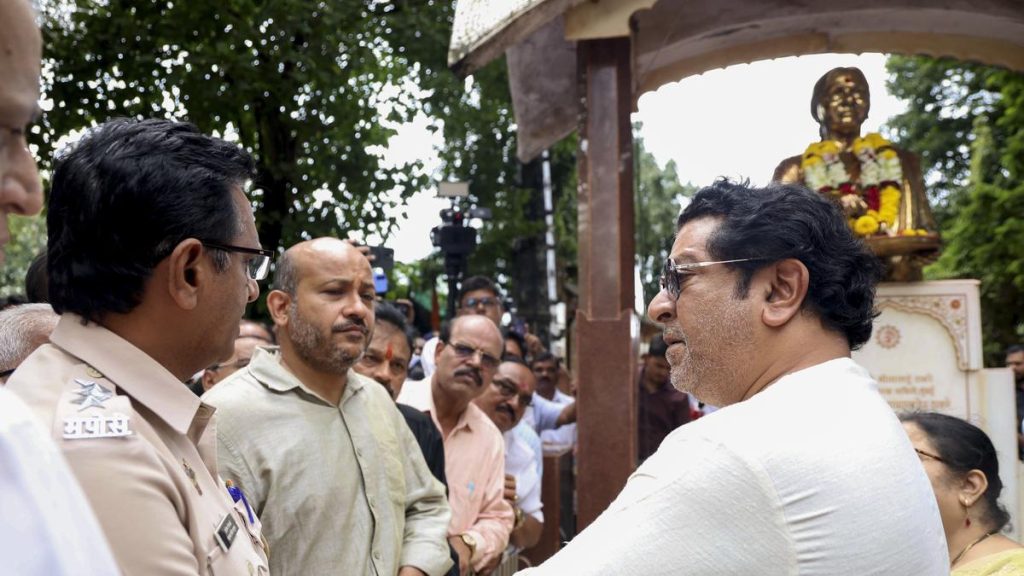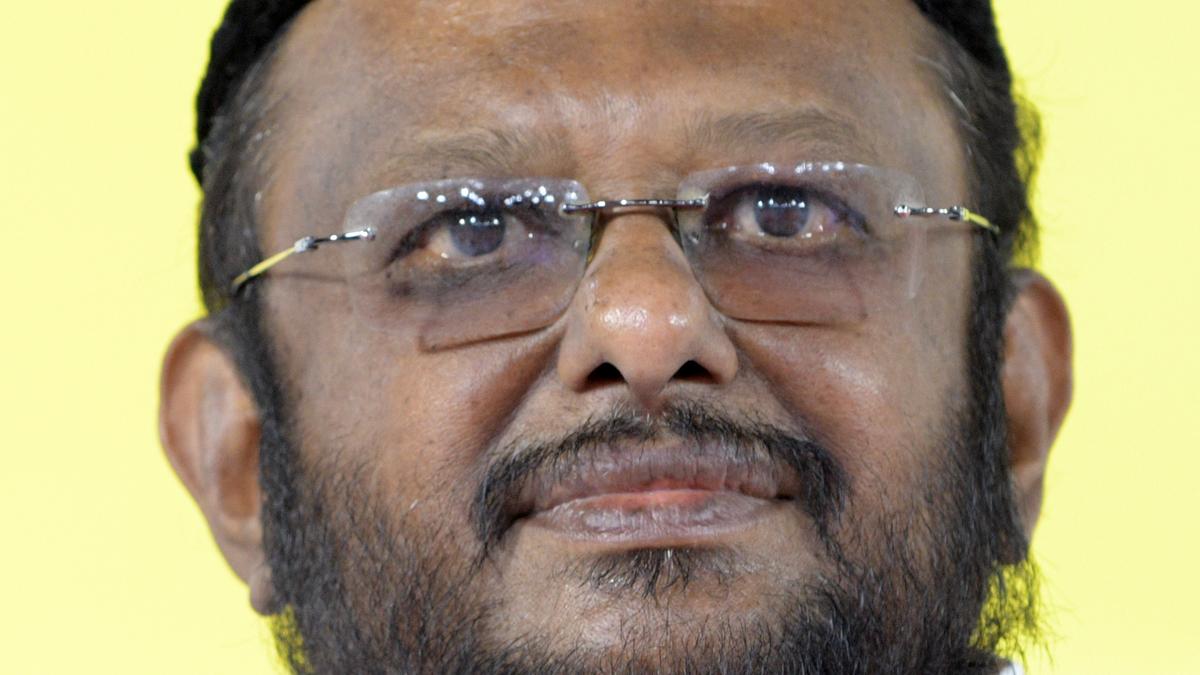Now Reading: Telangana’s Bonded Labour Survivors Reclaim Their Lives
-
01
Telangana’s Bonded Labour Survivors Reclaim Their Lives
Telangana’s Bonded Labour Survivors Reclaim Their Lives

Quick Summary
- Reshma, a survivor of human trafficking and bonded labor in Telangana, recounted carrying bricks while eight months pregnant at a canal construction site under harsh conditions. She faced harassment, minimal shelter, and lived with her children in extreme poverty.
- Other survivors shared similar stories of exploitation: Nagaveni from Karnataka carried heavy water pots while pregnant; her family remained trapped in debt bondage for years without electricity or adequate living conditions.
- Alakunta Raju recalled working as a stone cutter after being lured by false promises of better wages, enduring exploitative labor and earning freedom only five years later through government intervention. He now earns ₹30,000 monthly but still faces challenges rebuilding his life.
- Darshanam Venkataiah described caste-based discrimination intertwined with his bonded labor experience in Telangana road construction sites. His younger son was injured without compensation during work accidents before NGOs intervened too secure his release certificate and dignity.
Indian Opinion Analysis
The stories shared by trafficking survivors highlight the systemic issues around human exploitation that persist despite legislative safeguards against bonded labor in India. The accounts reveal severe vulnerabilities created by poverty, lack of education or awareness about legal rights, combined with caste-based discrimination that exacerbates these issues for marginalized communities. Although rescue operations aided recovery for some individuals like Raju and Venkataiah, the slow pace of justice suggests gaps in enforcement mechanisms that need urgent attention from policymakers.
These cases also underline the importance of building awareness regarding victims’ rights among vulnerable populations-or even integrating this into India’s educational curriculum-to improve systemic resilience against slavery-like practices over time.
Read more: The Hindu

























